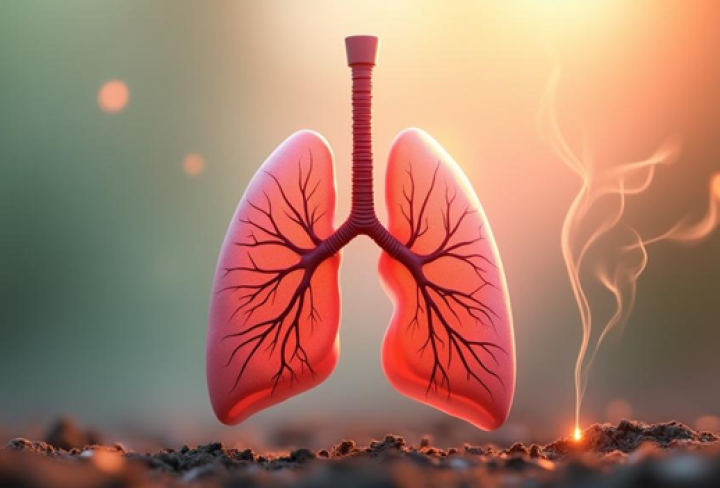Chronic obstructive pulmonary disease, or COPD, is a lung condition that makes it tough to breathe. Many folks in the United States live with it, and smoking is often a big reason why. If you smoke or know someone who does, understanding how smoking relates to COPD is a must. By knowing more, you can work towards healthier lungs.
Understanding COPD
So, what is COPD? It’s a disease that affects your lungs and makes breathing hard. When it comes to COPD, we’re talking about two main types: emphysema and chronic bronchitis. Emphysema hurts the air sacs in your lungs, while chronic bronchitis is when your airways become inflamed. Common COPD symptoms include coughing, wheezing, and being out of breath, even with simple tasks. Knowing these can help spot COPD early.
The Impact of Smoking on Lung Health
Smoking can really mess up your lungs over time. When you smoke, your lungs collect all kinds of nasty stuff that makes it hard for them to work well. Healthy lungs look pink and clear. But smokers’ lungs can look black and tarred. Cigarettes release harmful chemicals which damage the lung tissues, making it harder to breathe. Over time, this damage leads to COPD. Smoking is a leading cause.
Smoking as the Leading Cause of COPD
Smoking is indeed at the heart of many COPD cases. Stats show that most folks with COPD are or were smokers. But smoking isn’t the only risk. Factors like air pollution and workplace dust also play a role. Plus, secondhand smoke, when you breathe in someone else’s smoke, is dangerous too. It can contribute to COPD in non-smokers.
The Benefits of Quitting Smoking for COPD Patients
Quitting smoking has immediate perks for your health. Within days of stopping, you can breathe easier and feel better. Stopping smoking slows down the progression of COPD. Once the lungs stop dealing with smoke, they can start to heal and work better. Many folks who quit find they have more energy and can do things they had stopped doing. It’s a big step towards a brighter, healthier life.
Strategies for Quitting Smoking
Thinking about quitting? There are lots of ways to help. Nicotine replacement therapies, like patches and gum, can help reduce cravings. Prescription medicines might also support the process. Combining these with behavioral support from a counselor can boost your chances of quitting. It’s not easy, but these tools can help you all the way.
Managing COPD for Better Lung Health
To keep COPD in check, regular doctor visits are crucial. These appointments help track the disease and tweak COPD treatment as needed. Pulmonary rehabilitation is another big help. It’s a program that includes exercise, education, and support. Medications, such as inhalers, can manage COPD symptoms and improve your breathing day-to-day.
Lifestyle Changes to Improve Lung Health
Want to help your lungs? Consider lifestyle changes. Regular exercise, suited for folks with COPD, keeps the lungs working and builds strength. Eating a balanced diet with fruits and vegetables is great too. Don’t forget to watch out for air pollutants and environmental irritants, as they can worsen COPD symptoms.
Prevention of COPD
Thinking about COPD prevention? The best way is to never start smoking. Protect kids from secondhand smoke. Keep the home and car smoke-free zones. In workplaces, follow all safety guidelines to minimize exposure to harmful substances. By taking these steps, you reduce the risk of developing COPD.
Conclusion
Quitting smoking is essential for good lung health. For those with COPD, it helps manage the disease and improves life quality. If you’re looking to quit, reach out to health professionals. They can guide you with the right tools and COPD treatment. Taking action means protecting yourself and those around you, ensuring a healthier future.

